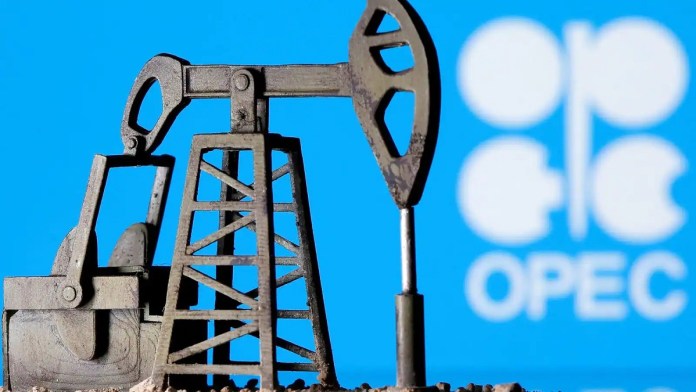Two days after the Group of Seven (G7) nations agreed on a price cap on Russian oil, OPEC+ agreed to stick to its oil output targets at a meeting today as the oil markets struggled to assess the impact of a slowing Chinese economy on demand and a G7 price cap on Russian oil on supply. Two days ago, G7 nations and Australia had agreed to a $ 60 per barrel price cap on Russian seaborne crude oil in a move to deprive President Vladimir Putin of revenue while keeping Russian oil flowing to global markets.
OPEC+, which comprises the Organisation of the Petroleum Exporting Countries (OPEC) and allies including Russia, totalling 23 members, had earlier irked the US and other Western nations in October when it agreed to cut output by 2 million barrels per day (bpd), about 2% of world demand, from November until the end of 2023.
Oil prices have fallen to below $ 90 a barrel from more than $ 120 in early June ahead of potentially disruptive sanctions on Russian oil, weakening crude demand in China and mounting fears of a recession.
Why OPEC+ took this decision
OPEC+ argued that it had reduced output because of a weaker economic outlook. Oil prices have declined since October due to slower Chinese and global growth and higher interest rates, prompting market speculation the group could cut output again. Today, the oil producers decided to keep the policy unchanged. Its key ministers will next meet on 1 February for a monitoring committee while scheduling a comprehensive meeting for 3-4 June.
Explaining the decision, OPEC said in a press release: “In line with the decision of the OPEC and non-OPEC Participating Countries in the Declaration of Cooperation at the 33rd OPEC and non-OPEC Ministerial Meeting on 5 October 2022, which was purely driven by market considerations and recognized in retrospect by the market participants to have been the necessary and the right course of action towards stabilizing global oil markets; and adhering to the approach of being proactive and pre-emptive, the Participating Countries reiterated their readiness to meet at any time and take immediate additional measures to address market developments and support the balance of the oil market and its stability if necessary.
“The Participating Countries decided to:
- “Reaffirm the decision of the 10th OPEC and non-OPEC Ministerial Meeting on 12 April 2020 and further endorsed in subsequent meetings, including the 19th OPEC and non-OPEC Ministerial Meeting on 18 July 2021 and the 33rd OPEC and non-OPEC Ministerial Meeting on 5 October 2022, including the adjustment of the frequency of the monthly meetings to become every two months for the Joint Ministerial Monitoring Committee (JMMC) and the authority of the JMMC to hold additional meetings, or to request an OPEC and non-OPEC Ministerial Meeting at any time to address market developments if necessary.
- “Reiterate the critical importance of adhering to full conformity and compensation mechanism taking advantage of the extension approved on the 33rd OPEC and non-OPEC Ministerial Meeting.
- “Hold the 35th OPEC and non-OPEC Ministerial Meeting on 4 June 2023.
Expressing his opinion about the decision, Algerian Energy Minister Mohamed Arkab said that the decision of OPEC+ to keep output rates unchanged was appropriate to market fluctuations.
West continues to target Russia
JP Morgan said on 2 December that OPEC+ could review production in the new year based on fresh data on Chinese demand trends and consumer compliance with price caps on Russia’s crude output and tanker flow.
Washington accused the group and one of its leaders, Saudi Arabia, of siding with Russia despite Moscow’s war in Ukraine. Energy analysts had expected OPEC+ to consider fresh price-supporting production cuts ahead of a possible double blow to Russia’s oil revenues.
The European Union is poised to ban all imports of Russian seaborne crude from Monday, while the US and other members of the G-7 will impose a price cap on the oil Russia sells to countries around the world.
The Kremlin has previously warned that any attempt to impose a price cap on Russian oil will cause more harm than good. Moscow said it would not sell its oil under the cap and was analysing how to respond.
Russia’s Deputy Prime Minister Alexander Novak said today Russia would rather cut production than supply oil under the price cap and said the cap may affect other producers.
Sources said several OPEC+ members have expressed frustration at the cap saying the West could ultimately use the anti-market measure against any producer.
The US said the measure was not aimed at OPEC.
Many analysts and OPEC ministers have said the price cap is confusing and probably inefficient as Moscow has been selling most of its oil to countries like China and India, which have refused to condemn the war in Ukraine. However, neither an OPEC meeting yesterday nor the OPEC+ meeting today discussed the Russian price cap, sources said.



You must log in to post a comment.